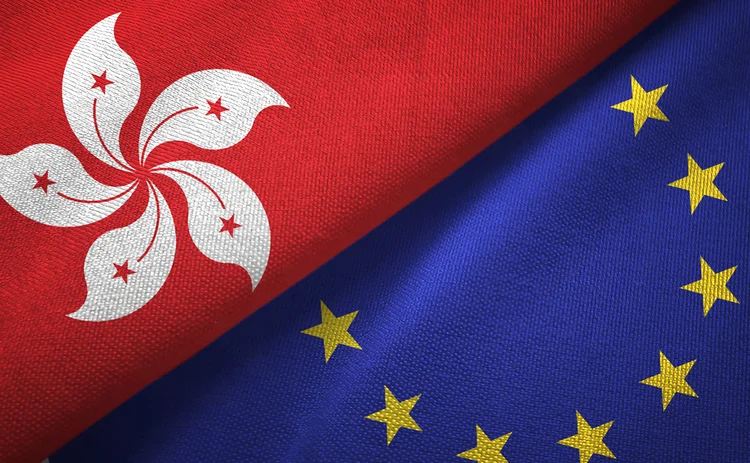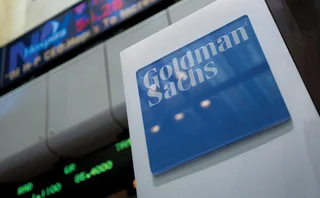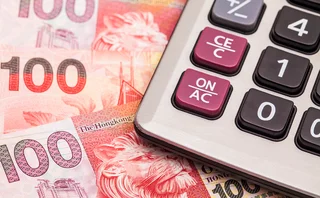
Hong Kong seeks European equivalence for Hibor and Honia
For the territory’s crucial renminbi fixings, however, no path to approval has yet been decided

The Hong Kong Monetary Authority (HKMA) is going the equivalence route to get approval for its two local interest rates from European benchmark regulators, but for the territory’s all-important renminbi fixings, no clear path has been charted yet.
Hong Kong is following Asian neighbours like Australia, Japan, Singapore and South Korea in seeking equivalence for its local rates, the Hong Kong Interbank Offered Rate (Hibor) and the HKD Overnight Index Average (Honia), from European benchmark regulators. Having equivalence means local regulators have rules in place that are demonstrably similar or achieve the same outcome as those in the EU. Clinching that parity would allow EU-regulated companies to continue using the overseas rates after the end-2021 deadline.
“In Hong Kong, we are proceeding with the European Commission with the aim to have registration through equivalence,” says Barry Yip, head of monetary operations at the HKMA. “We are working with CNH [China offshore renminbi] and CNY [China renminbi] Hibor, and Honia will also go the equivalence route, but subject to any refinement after the consultation.
“Meanwhile, other indexes will be handled by the respective owners,” he adds, referring to the renminbi fixings as well as other local indexes.
He says he expects the equivalence process to be “completed by the end of 2021”.
Will Hallatt, a partner at Herbert Smith Freehills in Hong Kong, says the HKMA’s move to seek equivalence on rates is welcome news for European users of Hibor and Honia, adding that any lessening in their availability would be particularly damaging for a number of European entities that book swaps in those rates.
“In particular we’ve got many back-to-back transactions where people [in Hong Kong] are booking trades back to their EU counterparts, particularly the large investment banks,” says Hallatt. “So I think equivalence will have a broader impact than people might initially imagine.”
But equivalence would only apply to interest rates – the HKMA left foreign exchange fixings out.
Renminbi rebuff
In Hong Kong, the Treasury Markets Association runs not only Hibor and Honia, but also the on- and offshore renminbi fixings, whose future standing is still unclear. The association, however, told Risk.net last week that it had made progress in getting the legal representation needed to register its two fixings, the USD/HKD and USD/CNH. Both are critical benchmarks for any European firm doing business in China, and arguably of far greater importance to EU companies than Hibor or Honia, says an executive responsible for forex markets at an industry association in Hong Kong.
“If the TMA doesn’t seek authorisation for these foreign exchange benchmarks under BMR [Benchmark Regulation] via one of the other routes – endorsement or recognition – European-supervised entities will not be able to hedge their exposures or take positions using a financial instrument that references these rates or uses them to determine the settlement amount and will need to look for alternatives,” he says.
Having been sidelined on equivalence for the fixings, the association has only two options left: ‘recognition’ from a regulator in an EU member state, or ‘endorsement’ by an EU-registered index administrator.
In March, the TMA said a major sticking point in petitioning for recognition was the requirement that administrators retain a legal representative in a member state. That much-criticised precondition could be re-examined as part of a review of the Benchmark Regulation the EC plans to carry out before the end of this year.
In March, Australia and Singapore became the first jurisdictions to receive a draft decision from the EC declaring their regulatory frameworks for benchmarks equivalent under Article 30 of the Benchmark Regulation. That announcement came less than a month after the EC extended the compliance deadline for third-country benchmarks by two years, to December 31, 2021.
Andy Ng, the senior manager responsible for benchmarks at the TMA, says that, for those two countries, equivalence only covered interest rates because there are no real alternatives to them and because foreign exchange fixings would add time and complexity to an already laden process.
“I heard that the Singapore and Australian regulators think that their forex benchmarks always have an alternative – like WM/Reuters – but for interest rates, it is not easy to get a relevant alternative,” says Ng.
So the TMA has moved ahead on finding a legal representative.
“The situation is getting better because we have now had a referral to a potential legal representative in the EU,” he says. “But at the moment, we are still evaluating our options for all of our benchmarks, including the forex benchmarks. We haven’t crossed out any options.”
Only users who have a paid subscription or are part of a corporate subscription are able to print or copy content.
To access these options, along with all other subscription benefits, please contact info@risk.net or view our subscription options here: http://subscriptions.risk.net/subscribe
You are currently unable to print this content. Please contact info@risk.net to find out more.
You are currently unable to copy this content. Please contact info@risk.net to find out more.
Copyright Infopro Digital Limited. All rights reserved.
As outlined in our terms and conditions, https://www.infopro-digital.com/terms-and-conditions/subscriptions/ (point 2.4), printing is limited to a single copy.
If you would like to purchase additional rights please email info@risk.net
Copyright Infopro Digital Limited. All rights reserved.
You may share this content using our article tools. As outlined in our terms and conditions, https://www.infopro-digital.com/terms-and-conditions/subscriptions/ (clause 2.4), an Authorised User may only make one copy of the materials for their own personal use. You must also comply with the restrictions in clause 2.5.
If you would like to purchase additional rights please email info@risk.net
More on Markets
Repo clearing rule could raise SOFR volatility – OFR analysts
Analysis of 2022 data finds large divergence in tail rates but no change in median
Investors dip a toe back into Tips despite April losses
US inflation-linked bonds back in vogue as stagflation hedge
Europe’s Ucits funds: Made in the USA
Counterparty Radar: EU retail funds market is a prime example of Trump’s miscalculation on trade
Goldman Sachs doubled FX trading revenues in 2024
Bumper Q4 powers bank to head of US dealer pack by foreign exchange revenue
The Term €STR transition: challenges and market readiness
The progress, challenges and factors shaping the adoption of Term €STR as financial institutions transition from Euribor
Pimco’s $19 billion Sonia swaptions trade
Counterparty Radar: Bond giant springs up as largest player in space among US mutual fund managers, with Guggenheim shadowing its move
HK warrant issuers optimistic on listing cost cuts
Inclusion of listing reform in second budget speech raises hopes for action on ‘expensive’ fees
Asia’s bond investors hesitant to buy US dip, say dealers
Insurers and pension funds have been slower to step in than usual during sell-off
Most read
- EU firms fear dollar liquidity becoming tariff bargaining chip
- Trump tariffs sent FX options traders on a wild ride
- CFTC takes red pen to swaps rules, but don’t call it a rollback























